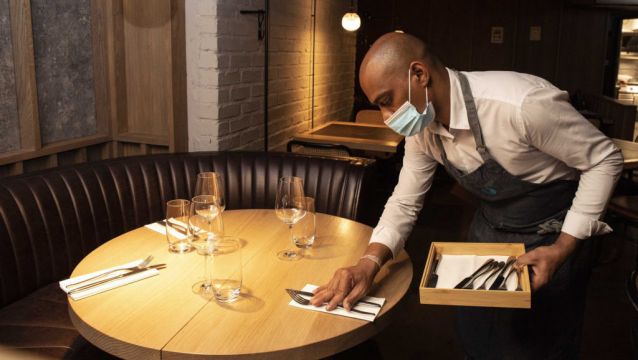Tourism businesses have warned that the cumulative impact of changes to payroll costs, including an increase in the minimum wage at the start of the year, could harm Ireland’s competitiveness as a holiday destination.
It is estimated that the owners of bars, restaurants and visitor attractions could see their labour costs increase by over 10 per cent this year as a result of the changes and by 31 per cent annually in the longer term.
The increases will be somewhat smaller for hotel operators at 6 per cent this year and 21 per cent from 2026 onwards.
A report commissioned by Fáilte Ireland shows half of all owners of businesses in the tourism and hospitality industry fear the increase in the minimum wage to €12.70 per hour since January will have a significant impact on their payroll costs.
The figure increases to 77 per cent for businesses operating in the food and drink sector.
A survey of over 1,200 business owners in the tourism industry found 59 per cent stated they would deal with the extra labour costs by increasing their prices to customers, while 37 per cent said they would reduce worker hours to maintain staff costs at their current level.
However, the report said most businesses did not actually want to increase their prices but felt they had to cover their costs somehow.
Three out of 10 owners said they would address the issues by employing fewer staff, while 28% said they would absorb the cost increase by lowering their operating margins.
Approximately one in five businesses claimed the increase in the national minimum wage would have minimal or no impact on their business.
The most common reason provided why they felt they would largely be unaffected by the increase was because they already paid their staff well above the minimum rate.
However, they also acknowledged that other staff employed above the minimum wage would expect proportionate increases to their salary.
“It perpetuates the upward spiral of all costs. It sets a floor for expenses that are uncompetitive against our competitors in Europe when competing for visitors who have a choice on where to go on vacation,” said one business owner.
Among other key changes in employment costs made as a result of recent government policies are increased public holidays, the introduction of statutory sick pay, PRSI increases and the rollout of auto-enrolment for pensions.
Other measures with the potential to impact on the tourism sector are extended parental leave and proposed remote working legislation.
In addition, the Government has given a commitment to gradually increase the national minimum wage until it reaches the National Living Wage in 2026 when it is estimated it will be approximately €15 per hour.
Since January 1st, 2024, the national minimum wage rose by €1.40 to €12.70 per hour – an increase of 12.4 per cent.
The report by consultants, Crowe, pointed out that a comparatively high share of employees in the accommodation and food services sector are at the lower end of the wage bracket which makes it more exposed than other sectors to increases in the national minimum wage.
Staff working in the accommodation and food service sector account for around 30% of all employees earning the national minimum wage.
The Labour Force Survey estimated that some 40,400 workers in the sector were employed on the national minimum wage or less in 2022.
The report calculated that the long-term impact of the various measures were likely to raise employment costs by over 31% from 2026 onwards for restaurant and bar owners as well as operators of tourist attractions.
The figure for hoteliers over the long-term is estimated at 21 pe cent.
The report said the changes to the minimum wage and the requirement for employer pension contributions to increase to 6% within 10 years of the introduction of auto-enrolment of workers on pension schemes were the main factors driving the increases in labour costs.
Some employers said they accepted the increase in the minimum wage but felt its impact should have been softened by lowering the VAT rate from 13.5 per cent to 9 per cent again or with more support from the Government.







